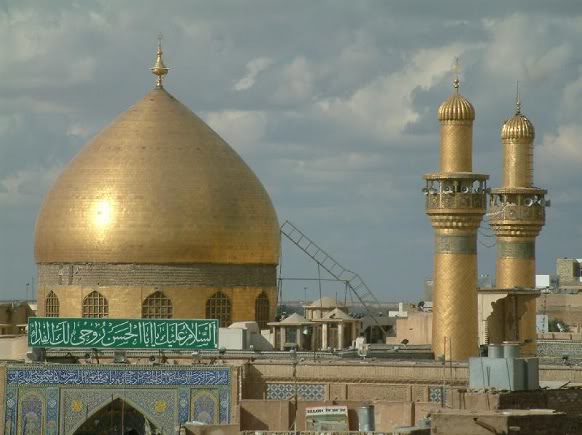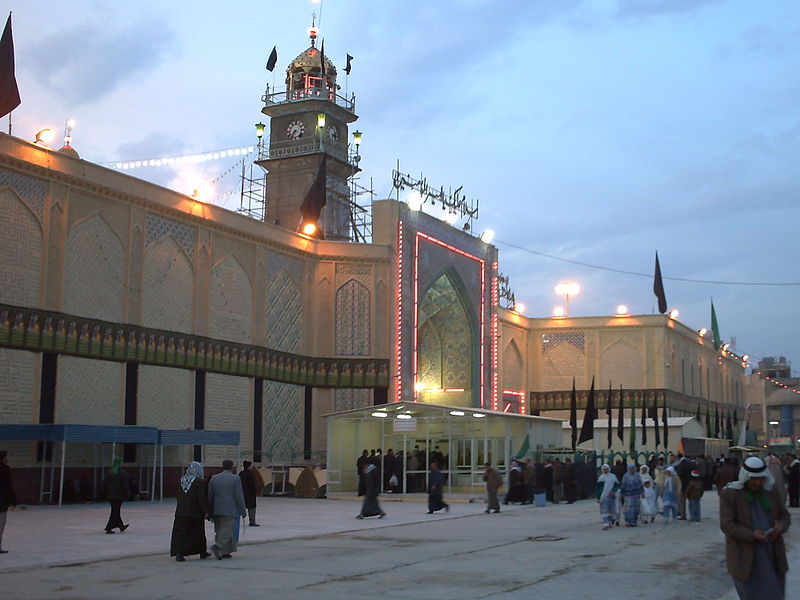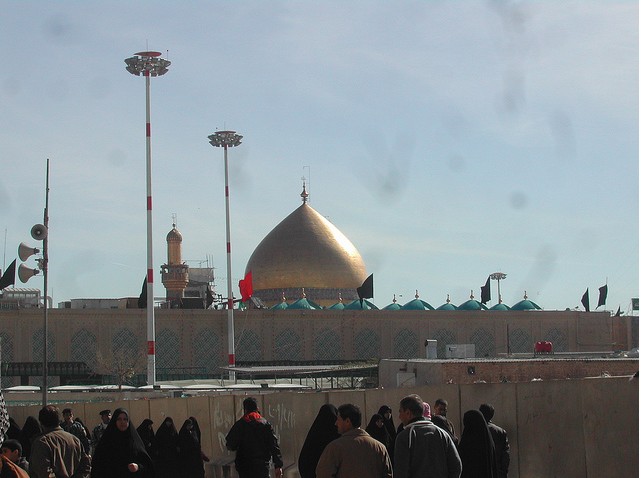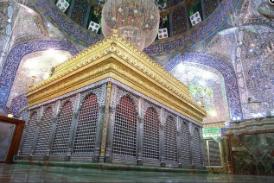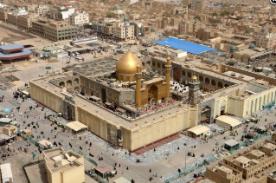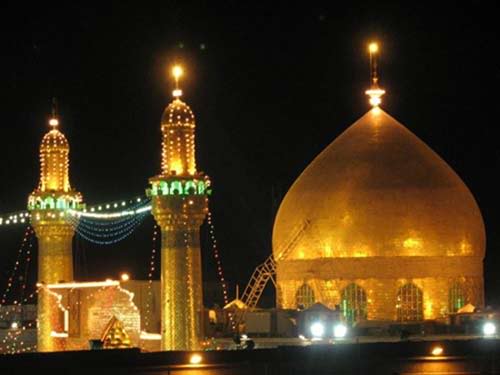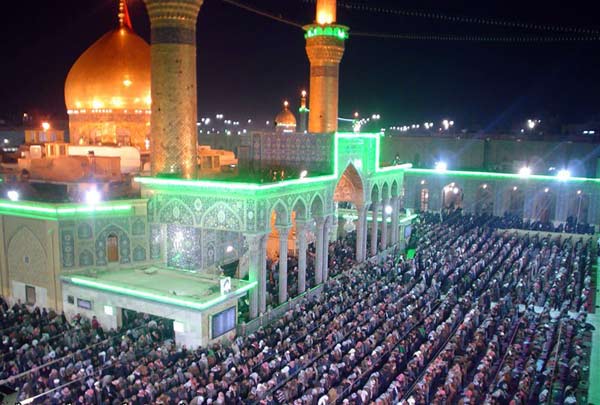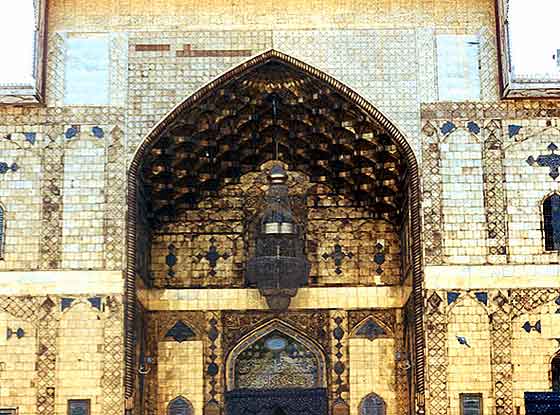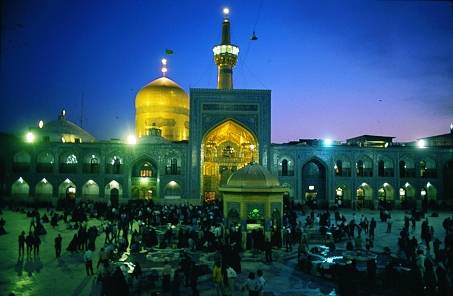IMAM ALI IBN ABU TALIB (r.a.)
Imam Ali ibn Abu Talib (R.A) (c. 600 - 661) was the fourth Caliph or successor of Holy Prophet Muhammad (pbuh) . He was born at Mecca, where his father Abu Talib, was an uncle of the Prophet. Imam Ali himself was adopted by Holy Prophet Muhammad (pbuh) and educated under his care.
While a boy, he distinguished himself by being the very first male to declare his adherence to the cause of Holy Prophet Muhammad (pbuh), who some years afterwards gave him his daughter Bibi Fathima Zahra in marriage. Imam Ali (r.a)) proved himself to be a brave and faithful soldier, and when Holy Prophet Muhammad (pbuh) passed away from this physical world, without male issue, a few emigrants thought Imam Ali (r.a) to have the best claim to succeed Holy Prophet Muhammad (pbuh). However, the first caliph was Abu Bakr (r.a), followed by Umar (r.a) and Uthman (r.a). It was not until 656, after the murder of Uthman (r.a), that Imam Ali (r.a) assumed the title of caliph. Certain conspirators later claimed that he took no steps to prevent this murder, and use this story as perhaps the only blot upon his character. However, some stories also claim that Imam Ali (r.a) sent his sons Imam Hussain (r.a) and Imam Hasan (r.a) to defend Uthman (r.a), and was angered when they were unable to protect him.
Almost the first act of his reign was the suppression of a rebellion under Talha and Zobair (two eminent companions of Holy Prophet Muhammad (pbub)), The rebel army was defeated at the Battle of Basra (also known as the Battle of the Camel); Imam Ali (r.a) soon afterwards made Kufa his capital. His next care was to get rid of the opposition of Muawiyah, the governor of Syria, who had established himself at the head of a renegade army. A prolonged battle took place in July 657 in the plain of Siffin (Suffein), near the Euphrates; the fighting was at first, in favour of Ali, when suddenly a number of the enemy, fixing copies of the Quran to the points of their spears, exclaimed that "the matter ought to be settled by reference to this book, which forbids Muslims to shed each other's blood". The superstitious soldiers of Imam Ali (r.a) refused to fight any longer, and demanded that the issue be referred to arbitration. Abu Musa was appointed umpire on the part of Imam Ali (r.a), and `Amr-ibn-al-As, a veteran diplomat, on the part of Muawiyah. It is said that `Amr persuaded Abu Musa that it would be for the advantage of Islam that neither candidate should reign, and asked him to give his decision first. Abu Musa having proclaimed that he deposed both Imam Ali (r.a) and Muawiya, `Amr declared that he also deposed Imam Ali (r.a), and announced further that he invested Muawiya with the caliphate. This treacherous decision greatly injured the cause of Imam Ali (r.a), which was still further weakened by the loss of Egypt.
It chanced, however - according to a legend, the details of which are quite uncertain - that three of the sect of them Karijites had made an agreement to assassinate Imam Ali (r.a), Muawiyah and `Amr, as the authors of disastrous feuds among the faithful. The only victim of this plot was Imam Ali (r.a), who died at Kufa in 661, of the wound inflicted by a poisoned weapon. A splendid mosque called "Meshed Ali" was afterwards erected near the city at Najaf, the place of his burial (although some believe he is buried at Mazar-e Sharif in Afghanistan). Imam Hasan (r.a) is said by the Sunni tradition to have stepped aside to prevent further bloodshed among Muslims. Muawiyah,who founded the Umayyad dynasty of caliphs thus became the caliph. Imam Ali's (r.a) have stepped aside to prevent further bloodshed among Muslims. Muawiyah,who founded the Umayyad dynasty of caliphs thus became the caliph. Imam Ali's (r.a) descendants by Fatima are known as the Fatimids.
The question of Imam Ali's (r.a) right to succeed to the caliphate is an article of faith which divided the Muslim world into two great sects, the Sunni and the Shia. The Sunnis believe that the prophet chose Abu Bakr (r.a) to be the first caliph, while the Shia believe that he chose Imam Ali (r.a) and announced it in public in Ghadir Khom. Whatever the case, Imam Ali (r.a) did not challenge Abu Bakr (r.a) or any of the later caliphs, rather he served as an advisor to them.
Imam Ali (r.a) is greatly respected by all Muslims, both Sunni and Shia. The Shia in particular venerate him as second only to the prophet, call him among several titles the "Leader of the Faithful" (Amir-ul- mumineen) and the "Lion of God" (Sher-i-Khuda), and celebrate the anniversary of his martyrdom; Imam Ali r.a) is described as a bold, noble and generous man, "the last and worthiest of the primitive Muslims, who imbibed his religious enthusiasm from companionship with the prophet himself, and who followed to the last the simplicity of his example."
In the eyes of the later Muslims he was remarkable for learning and wisdom, and there are extant collections of proverbs and verses which bear his name: the Sentences of Imam Ali (r.a). The most famous collection of Imam Ali's (r.a) speeches and letters is the Nahj al Balagha meaning "The peak of eloquence".
His sons Imam Hasan (r.a) and Imam Hussein (r.a) are also revered by Muslims, especially the Shia.
|
